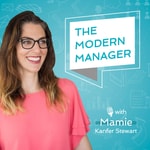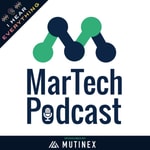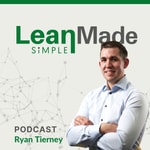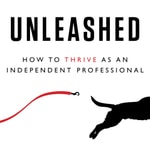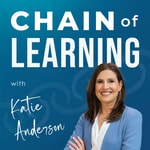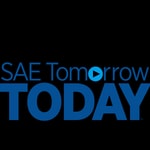People Solve Problems – Détails, épisodes et analyse
Détails du podcast
Informations techniques et générales issues du flux RSS du podcast.
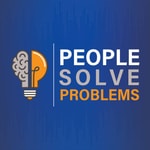
People Solve Problems
Jamie Flinchbaugh
Fréquence : 1 épisode/16j. Total Éps: 53
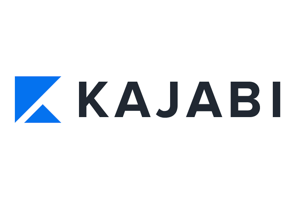
Classements récents
Dernières positions dans les classements Apple Podcasts et Spotify.
Apple Podcasts
🇨🇦 Canada - management
23/07/2025#75🇨🇦 Canada - management
20/06/2025#93🇨🇦 Canada - management
19/06/2025#47🇨🇦 Canada - management
16/06/2025#90🇨🇦 Canada - management
15/06/2025#67🇫🇷 France - management
30/04/2025#96🇫🇷 France - management
29/04/2025#79🇫🇷 France - management
28/04/2025#58🇫🇷 France - management
27/04/2025#42🇫🇷 France - management
26/04/2025#28
Spotify
Aucun classement récent disponible
Liens partagés entre épisodes et podcasts
Liens présents dans les descriptions d'épisodes et autres podcasts les utilisant également.
See all- https://mgstrat.com/
8 partages
- https://www.aon.com/cyber-solutions
5 partages
- http://www.intel.com
3 partages
Qualité et score du flux RSS
Évaluation technique de la qualité et de la structure du flux RSS.
See allScore global : 59%
Historique des publications
Répartition mensuelle des publications d'épisodes au fil des années.
BMA's Nick Katko on Revolutionizing Business Through Lean Accounting Systems
mercredi 30 octobre 2024 • Durée 21:28
Nick Katko, Owner and President of BMA, joined Jamie Flinchbaugh on the People Solve Problems podcast to discuss lean accounting systems and their role in problem-solving. With over 30 years of experience in practicing lean accounting, Nick coaches companies on how to leverage these systems to improve their operations and decision-making processes.
Nick explained that lean accounting is more than just debits and credits; it's a comprehensive system that encompasses both financial and management accounting. In the financial accounting realm, lean accounting focuses on creating continuous improvement within the accounting function itself, eliminating waste and boosting productivity. On the management accounting side, it's about transforming the information used to run the business, ensuring it's relevant and reliable for lean operations.
The conversation highlighted how traditional management accounting practices have largely fallen by the wayside, but lean accounting is bringing them back in a more effective form. Nick pointed out that as companies became leaner in their operations, they realized that traditional management accounting information wasn't helpful for decision-making in a lean environment. This realization led to the development of lean accounting systems.
One of the key aspects Nick emphasized was the importance of thinking about lean accounting as a system rather than just an exercise. It involves people, analysis, decision-making processes, and operational practices, all working together to establish cause-and-effect relationships. Nick stressed that improving financial performance requires operational changes, and lean accounting provides the tools to make these connections.
The discussion touched on the role of lean accounting in both problem identification and problem-solving. Nick explained that it depends on the situation - sometimes you start with a problem in the numbers and need to find the operational root cause, while other times you're making operational improvements and need to quantify the financial impact. He emphasized the importance of understanding operational performance and making connections beyond just the financial figures.
Nick also addressed the common dilemma of "hard" versus "soft" savings in continuous improvement programs. He explained how lean accounting avoids the pitfall of soft savings by focusing on tangible outcomes, such as time saved, and then exploring how that time can be utilized to create value.
When it comes to initiating a lean accounting transformation, Nick noted that it often starts with operational and continuous improvement teams, followed by small business owners, and then finance people. He stressed the importance of finance teams developing a learner's mindset and being open to understanding lean principles and their potential financial impact.
For organizations considering a lean accounting journey, Nick outlined a general approach: start with education for key stakeholders, conduct a pilot project to prove the concept, develop standard work, and then replicate the process across the organization. He emphasized that it's an ongoing journey of improvement, not a one-time implementation.
To learn more about lean accounting and its applications, Nick Katko has authored "The Lean CFO" and co-authored "Practicing Lean Accounting." Those interested in connecting with Nick can visit www.maskell.com or find him on LinkedIn.
Alex Senchak: Mastering Agile Leadership in Uncertain Times
mercredi 16 octobre 2024 • Durée 21:54
Alexander Senchak, Managing Partner at Duarte Pond Investments, joined Jamie Flinchbaugh on the People Solve Problems podcast to discuss the importance of "meeting the moment" as a leader and innovator. Alex, a management consultant and investor focused on business intelligence and technologies to support performance in the hospitality and higher education sectors, shared his insights on how leaders can adapt to rapidly changing external factors.
Alex emphasized the need for leaders to be flexible in their approach, rather than rigidly adhering to pre-established plans. He noted that external factors, often unexpected, are increasingly impacting organizations at all levels. These factors, Alex explained, are not just affecting specific departments but permeating entire organizational cultures and reaching even junior colleagues. This widespread impact makes it crucial for leaders to be prepared to pivot and address challenges that may arise from unexpected quarters.
The conversation touched on the concept of having a "playbook" for leaders. Alex suggested that rather than trying to anticipate every possible scenario, leaders should focus on designing principles and understanding their organization's talents and risks. He stressed the importance of being proactive and creative in planning, rather than reactive when situations occur. Alex highlighted the need for clear communication plans and considering who has access to critical information, especially in today's remote work environments.
When discussing how to balance core identity with flexibility, Alex pointed out that this balance evolves over time, particularly for growing companies. He advised continually reassessing what constitutes the core business and what emerging revenue streams might become important in the future. Using higher education as an example, Alex illustrated how rapidly changing factors like AI can quickly shift the landscape, making it essential for leaders to constantly reevaluate their core models.
On the topic of leadership and vision, Alex shared his perspective as an early-stage investor. He outlined three key factors he considers: the leader, the business idea, and the differentiating technology or angle. Alex noted that while it's rare to find all three in perfect alignment, he typically looks for strong leaders and solid business ideas, as technologies and market differentiators can change rapidly.
Alex offered valuable advice for aspiring leaders looking to develop their visionary skills. He emphasized the power of asking questions, suggesting that even when laying out plans, leaders can frame their ideas as questions. This approach, he explained, helps remove barriers and hierarchy, encouraging more open and productive conversations. He recommended exercises like having conversations where each statement is answered with a question, leading to deeper, more substantive discussions.
In conclusion, Alex’s insights provide a fresh perspective on adaptive leadership in rapidly changing environments. His emphasis on flexibility, continuous reassessment, and the art of asking questions offers valuable guidance for leaders across various sectors. To learn more about Alex's work and insights, visit his LinkedIn profile at https://www.linkedin.com/in/alexsenchak/.
Qorvo’s Lee Moore on Mastering Problem-Solving and Leadership
mercredi 5 juin 2024 • Durée 19:37
In this episode of People Solve Problems, host Jamie Flinchbaugh welcomes Lee Moore, Director of Foundry and Fab Materials at Qorvo. With nearly 25 years at Qorvo, Lee is deeply committed to developing a culture of proactive problem solvers within the organization. His role not only involves negotiating capacities and prices with external foundries but also leading teams to tackle issues effectively and foster continuous improvement.
Lee discusses his approach to collaboration, emphasizing the need to clearly identify the problem, understand who it affects, and determine who has the influence to drive solutions. He points out the critical role of data in validating problems and allocating resources, stressing that effective problem-solving requires more than just addressing complaints—it needs informed decision-making based on solid data.
Much of the conversation also explores Lee's strategies for coaching and team development. He explains how he assesses team members' skills and mindsets, particularly focusing on integrating newer employees into problem-solving processes. Lee utilizes the RACI matrix to clarify roles and responsibilities, ensuring that everyone involved understands their specific duties in solving organizational challenges.
This episode also explores the challenges of coaching individuals have who are resistant to feedback. Lee highlights the importance of empathy, understanding a person’s past coaching experiences, and adopting a tailored approach to meet their individual needs and learning styles.
Throughout the episode, Lee's passion for leadership and mentorship is evident as he talks about the importance of lifelong learning and self-improvement in problem solving. He encourages listeners to engage in reflective practice and see each challenge as an opportunity to enhance both personal and team capabilities.
For more about Lee, visit Qorvo's website at Qorvo.com or his LinkedIn profile at www.linkedin.com/in/lee-moore-2b653269. This episode of People Solve Problems not only approaches effective problem solving within the tech industry but also showcases the transformative power of skilled leadership and thoughtful coaching.
W. Henry Yaeger of Banner Group LLC on Commitment and Risk
mercredi 22 mai 2024 • Durée 19:28
On this episode of the People Solve Problems podcast, host Jamie Flinchbaugh welcomed W. Henry Yaeger, the Managing Principal of Banner Group LLC. Henry brings over 30 years of experience as an executive at global and Fortune 500 companies, and as an entrepreneur. He has held significant roles at major corporations like The Hershey Company and Unilever, and has also co-founded Guidehealth, a burgeoning digital health platform.
During the podcast, Henry shared valuable insights on knowing when to fully commit to new business opportunities, a topic particularly relevant given his current involvement with Guidehealth. He emphasized the importance of assessing risks and embracing the worst-case scenarios before making significant commitments. Henry advocated for a portfolio approach to managing life's opportunities, suggesting that one should balance risk throughout different stages of life much like managing a financial portfolio.
The discussion also covered practical strategies for decision-making in both personal career moves and broader business contexts, such as launching a new product or upgrading business systems. Henry stressed the necessity of combining intuitive judgment with thorough research to make well-rounded decisions. This approach involves not only tapping into personal instincts but also seeking advice from more experienced individuals and leveraging available information resources.
Jamie and Henry explored the concept of "portfolio thinking" in depth, discussing how to prioritize and balance various commitments to maximize personal and professional growth. They talked about the readiness to adapt or defer opportunities based on one's current situation and long-term goals.
Additionally, Henry provided advice for young professionals and entrepreneurs, emphasizing the importance of recognizing one's value and the potential to contribute meaningfully to various projects or roles. His insights are particularly useful for anyone at a crossroads, deciding whether to pursue a new venture or opportunity.
Listeners of this episode can expect to gain a deeper understanding of strategic decision-making and risk management from Henry's extensive experience and thoughtful advice. For more information about Henry and his work, visit his website at Banner Group LLC or connect with him on LinkedIn.
Jamie Flinchbaugh Reflects: Lessons from a Problem-Solving Journey
mercredi 8 mai 2024 • Durée 19:00
In this unique episode of the ‘People Solve Problems’ podcast, Jamie Flinchbaugh takes on the role of guest to offer listeners a special reflection on his podcast journey and the valuable lessons he's gleaned along the way from the many special guests. He discusses the importance of conversations in learning and growing, emphasizing how these discussions have fueled the podcast's purpose beyond just talking about his book on problem solving.
Jamie starts by honoring the late Daniel Kahneman, highlighting how Kahneman's work, particularly his book "Thinking, Fast and Slow," has influenced a wide array of fields, including economics, management theory, and everyday life practices. He encourages listeners to look into Kahneman's work, underscoring the timeless relevance of his insights on how our minds operate.
Reflecting on the core of his own teachings and writings, Jamie revisits the principle that understanding fundamental problem-solving first principles is more crucial than mastering numerous methods. This approach allows individuals to adapt and select their own methods effectively. He likens problem-solving to breathing, illustrating that, while it's a natural and ongoing human activity, there's always more to learn and ways to improve deliberately.
Jamie also touches on the broad spectrum of problem-solving, arguing that it encompasses far more than formal methodologies and should include strategic thinking and decision-making. He shares thoughts on open-ended problems, entrepreneurship, and the intertwined nature of decision making and problem-solving, suggesting that a strong grasp of problem-solving principles can benefit various aspects of life and work.
Throughout the episode, Jamie encourages a mindset of continuous learning and curiosity. He advocates for not taking one's problem-solving journey for granted and contemplates ways to accelerate the learning curve for others entering the workforce. Jamie's reflections aim to inspire listeners to explore deeper into problem-solving, strategic thinking, and how these skills apply to a wide range of scenarios, making this episode a thought-provoking pause in the podcast series.
Jeff Grimshaw of MGStrategy: Cultivating Agile Cultures Through Risk
mercredi 24 avril 2024 • Durée 20:52
In this episode of People Solve Problems, host Jamie Flinchbaugh welcomed Jeff Grimshaw, Principal at MGStrategy, for a thought-provoking conversation. Jeff Grimshaw, who has dedicated over 25 years to assisting leaders worldwide in aligning their organizations' people, strategy, and culture for better business outcomes, shared his insights on creating environments where taking calculated risks is encouraged to foster innovation and agility.
Jeff and Jamie discussed the critical difference between "play it safe" spaces and "go for great" environments within organizations. Jeff highlighted that many large companies, despite their complexity, are striving to become more agile to compete with smaller, more dynamic rivals. This transformation requires a shift in culture towards embracing risks as part of problem-solving and decision-making processes. Jeff emphasized the importance of defining clear domains where it's essential to adhere strictly to regulations and standards, such as safety and quality control ("play it safe"), versus areas where innovation and risk-taking can drive growth and improvement ("go for great").
A significant challenge in this cultural shift is overcoming the natural human tendency to avoid risks due to fear of failure or retribution. Jeff states that fostering a culture that supports taking calculated risks and learning from both successes and failures is crucial for organizations aiming to be more agile and innovative. He mentioned the importance of retrospectives or after-action reviews as a tool to learn from all outcomes, regardless of whether they're seen as successes or failures, helping to mitigate biases that can hinder effective decision-making.
The conversation underscored the importance of aligning individual actions with the broader interests of the organization. By encouraging a mindset of playing to win and thinking long-term, Jeff believes that organizations can overcome the inertia of a survival mindset, which is more about avoiding blame than achieving greatness.
This episode offers valuable insights into how leaders can cultivate a culture that balances safety and innovation, encourages risk-taking within a calculated framework, and aligns individual motivations with organizational goals for sustained success. Jeff Grimshaw's experience and perspectives make it a must-listen for anyone interested in leadership, culture, and the dynamics of change within organizations. For more on Jeff Grimshaw, visit his website at MGStrategy and connect with him on LinkedIn.
Innovating the Future: Cheryl Stokes on Inclusive Leadership at CNEXT
mercredi 10 avril 2024 • Durée 22:56
Cheryl Stokes, the CEO of CNEXT, joined Jamie Flinchbaugh on his podcast "People Solve Problems" to share her insights into corporate education, leadership development, culture change, diversity, equity, inclusion, and belonging. With a rich background that spans over two decades, Cheryl has significantly contributed to these fields through her roles at Heidrick & Struggles and Duke Corporate Education before her current role. Her educational achievements include two Master of Science degrees from MIT and a Bachelor of Science in Electrical Engineering from Kettering University, equipping her with a unique perspective on leadership and organizational effectiveness.
In the episode, Cheryl discusses the concept of inclusion, defining it as the intentional creation of an environment where all individuals can contribute productively. She stresses the importance of moving beyond merely assembling diverse groups to ensuring active participation and listening within these groups. She emphasizes that inclusion requires deliberate effort and intentionality to be meaningful and effective.
Cheryl elaborates on the concept of inclusive leadership, which she describes as the ability to foster an environment that celebrates and utilizes the diversity of a team. She outlines the traits of an inclusive leader, including humility, self-awareness, curiosity about others, cultural intelligence, the ability to collaborate effectively, and a visible commitment to inclusion. These traits, according to Cheryl, are essential for leaders who aim to unlock the full potential of their teams by creating a culture of belonging and engagement.
The conversation also touched on the equation of diversity and inclusion, with Cheryl explaining that while diversity is a fact, inclusion is an act that leads to a sense of belonging, which in turn drives engagement within organizations. This engagement is crucial for achieving lower turnover rates, higher productivity, and overall organizational success.
Cheryl's contributions extend beyond her professional work; she is involved in several organizations, including Alpha Kappa Alpha Sorority, Inc., and serves as a trustee with the UK charity Leadership Through Sport and Business, supporting disadvantaged young people. Her commitment to fostering inclusive environments and promoting social mobility is evident in her work and volunteer activities.
Listeners of the podcast can learn more about Cheryl Stokes and her work in fostering inclusive leadership and organizational cultures through her company's website, www.c-next.com, and her LinkedIn profile at https://www.linkedin.com/in/cheryl-stokes-0798653/. Her insights provide valuable guidance for anyone looking to enhance their leadership skills and build more inclusive, productive, and engaged teams.
Inclusive Problem-Solving and Culture Transformation: Insights from Rebecca Snelling of RS Consulting
mercredi 27 mars 2024 • Durée 20:11
In this episode of the People Solve Problems podcast, Jamie Flinchbaugh welcomes Rebecca Snelling, the owner of RS Consulting. The conversation focuses on the themes of collaboration, problem-solving, leadership, and the importance of a culture that supports these endeavors within the design and construction industry.
Rebecca brings a wealth of experience in coaching individuals, teams, and organizations on leadership and lean transformation, with a particular emphasis on culture advancement. She has a significant presence in the design and construction sector, contributing to various industry events both in the US and internationally. Her work involves helping clients to understand their current and target conditions and devising strategies to achieve their objectives effectively.
During the episode, Jamie and Rebecca explore the intricacies of collaboration in problem-solving. Rebecca underscores the importance of understanding a problem's impacts and the people it affects, advocating for the inclusion of diverse perspectives in the problem-solving process. She shares a compelling anecdote about a painter who, despite being unrelated to a construction project, provided a breakthrough solution during a planning session. This story highlights the value of external perspectives and the potential of "half-baked" ideas to spark innovation.
Rebecca also discusses the concept of "touching the outside of the problem," emphasizing the need to balance inclusivity with effectiveness. She suggests various strategies for managing large groups and ensuring productive collaboration, such as pre-discussions, breaking into smaller groups, and focusing on perspectives that offer the most value.
The conversation then shifts to the dynamics of problem-solving teams, with Rebecca advocating for a critical and thoughtful approach to team composition and problem scope. She warns against the inefficiency of involving too many participants and the necessity of maintaining a lean team for agility and speed.
Rebecca further addresses the balance between speed, thoroughness, and inclusion in problem-solving. She points out the pendulum swing between extremes and the importance of finding a middle ground that maximizes efficiency without sacrificing quality. She champions the development of problem-solving skills across the organization to empower more individuals and groups to address challenges effectively.
Ideation and brainstorming form another critical part of their discussion. Rebecca stresses the importance of setting clear expectations for brainstorming sessions, encouraging the sharing of half-baked ideas to foster collaboration and innovation. She mentions using tools like Mural for asynchronous collaboration and emphasizes the value of engaging younger or less experienced team members to bring fresh perspectives.
The episode encapsulates the essence of problem-solving in collaborative environments, highlighting the importance of diverse perspectives, the judicious composition of problem-solving teams, and the balance between speed and thoroughness. Rebecca's insights offer valuable lessons for leaders and organizations aiming to foster a culture that champions effective problem-solving and innovation.
For more on Rebecca's work and insights, visit her website at www.rebeccasnelling.com and connect with her on LinkedIn at https://www.linkedin.com/in/rebeccasnelling/.
Teams Solving Problems: Sarah Tilkens' Strategies from GE and The KPI Lab
mercredi 13 mars 2024 • Durée 19:44
In a recent episode of the People Solve Problems podcast, Jamie Flinchbaugh sits down with Sarah Tilkens, Senior Manager of OpEx for GE Healthcare as well as the CEO & Founder of The KPI Lab, to discuss the art and science of problem-solving within organizations. Sarah shares her journey from an early interest in Six Sigma to founding The KPI Lab, focusing on how to tackle complex problems that professionals face in today’s business environment. She emphasizes the importance of a clear understanding of problems, advocating for a methodical approach to problem identification that prioritizes empathy and deep listening.
Sarah’s insights into her role as an coach with GE and The KPI Lab reveal her approach: she sees KPIs as not just as metrics but as narratives that guide and motivate teams towards continuous improvement and innovation. Her discussion with Jamie explores how effective problem-solving involves blending analytical rigor with a profound understanding of human behavior and team dynamics.
Throughout the episode, Sarah provides practical examples of how asking the right questions, fostering a culture of curiosity, and adopting a learner’s mindset can transform challenges into opportunities for growth. She stresses the significance of leadership in cultivating an environment where teams are empowered to experiment, learn from failures, and innovate.
This conversation offers listeners an opportunity to learn about the nuances of operational excellence, the subtleties of managing team dynamics, and the critical role of leadership in fostering a problem-solving culture. For those eager to learn more about Sarah’s work or to connect with her, information is available on The KPI Lab's website (www.thekpilab.com) and her LinkedIn profile
This episode is essential for anyone looking to enhance their problem-solving skills, drive operational efficiency, and inspire a culture of innovation within their organization.
Unlocking Creativity in Problem-Solving with Durward Sobek of Montana State University-Bozeman
mercredi 28 février 2024 • Durée 25:06
In this People Solve Problems podcast episode, Jamie Flinchbaugh engages in a thought-provoking conversation with Durward Sobek, Vice Provost at Montana State University-Bozeman. They go into the challenges and nuances of solving ill-defined and open-ended problems, particularly in the realm of product development. Durward brings his extensive experience to the table, discussing the importance of truly understanding the needs and experiences of users to drive innovation and create effective solutions. Durward emphasizes the significance of approaching problem-solving with a wide lens, encouraging listeners to embrace the complexity and ambiguity of real-world issues. He shares insights into the ideation process, underscoring the value of generating a diverse range of ideas to uncover novel solutions. This approach, he argues, is key to moving beyond traditional, linear problem-solving methods, allowing for a more dynamic and flexible response to the challenges faced in product development and beyond. Throughout the episode, Durward highlights the critical role of empathy in understanding user needs. By actively listening and observing, innovators can gain a deeper insight into the problems they are trying to solve, leading to more impactful and user-centered solutions. He stresses the importance of looking at problems from multiple perspectives to find unique and effective answers that might not be immediately apparent. The conversation also touches on the value of collaboration and diversity of thought in the problem-solving process. Durward points out that bringing together individuals with different backgrounds and areas of expertise can significantly enhance the creative process, leading to richer, more comprehensive solutions. Durward's discussion with Jamie is not just about techniques and strategies for problem-solving; it also covers the mindset and cultural shifts necessary to tackle complex challenges effectively. They explore the need for organizations and individuals to be adaptable, willing to experiment, and open to learning from failure. This, Durward suggests, is essential for fostering an environment where innovation can thrive, and real progress can be made in addressing the multifaceted problems of today's world. Listeners interested in the intersection of innovation, problem-solving, and product development will find invaluable insights in this episode. Durward's expertise and perspectives shed light on how to approach ill-defined problems with a fresh, creative mindset, offering practical advice for anyone looking to make a meaningful impact through their work. For more on Durward's work and insights into problem-solving and innovation, you can visit Montana State University-Bozeman's website at https://www.montana.edu/dsobek/ or https://www.montana.edu/mie/ or connect with him directly through his LinkedIn profile at https://www.linkedin.com/in/durward-sobek-4838b96/. This episode is a must-listen for those passionate about driving change and creating solutions that genuinely meet user needs, highlighting the power of problem-solving, creativity, and collaboration in tackling some of today's most challenging problems.

